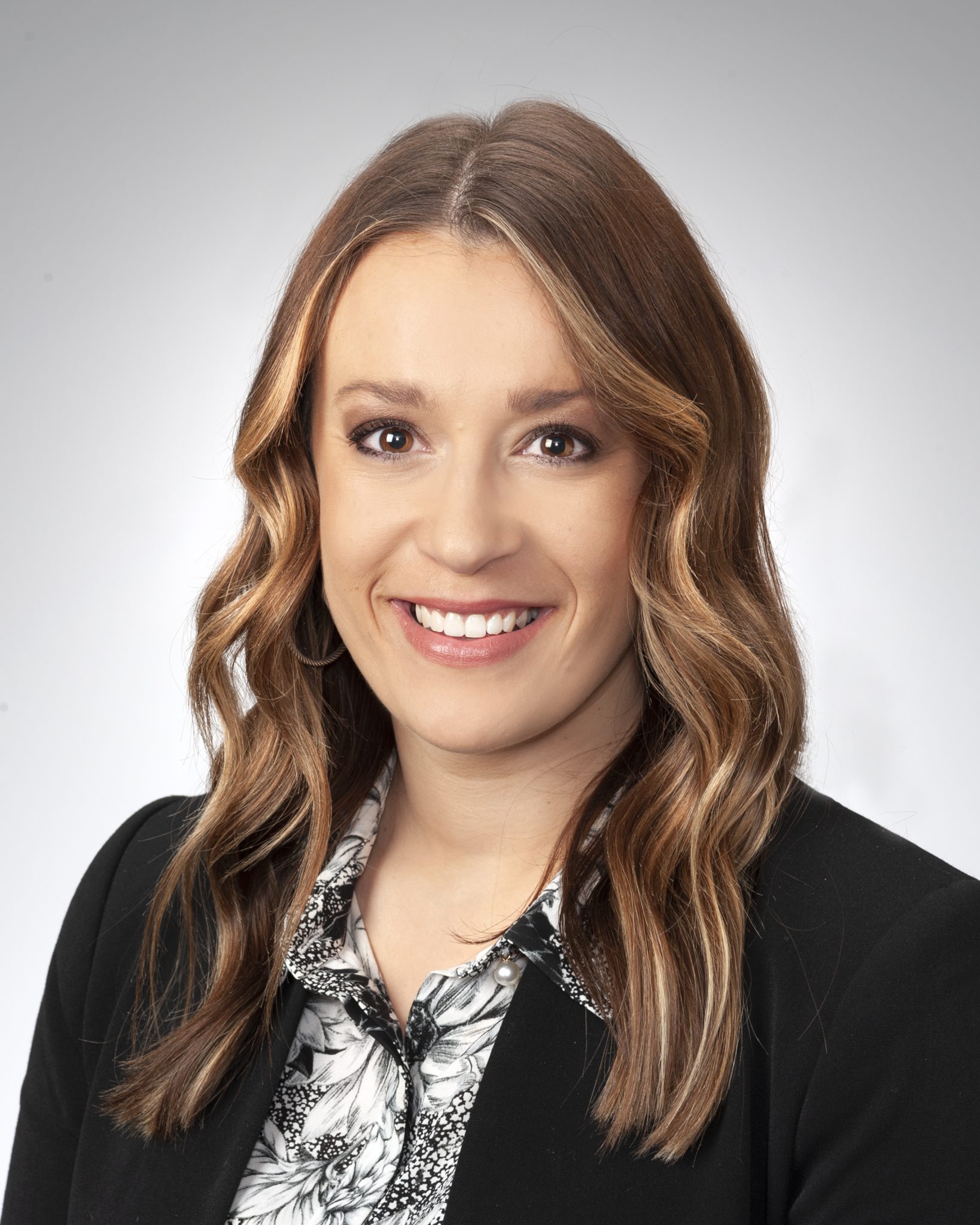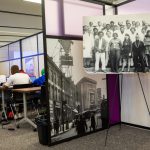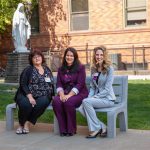Meet Ashley Iannazzo, DNP, RN, CNL, senior director, clinical operations, UPMC Center for Nursing Excellence; UPMC Travel Staffing senior nurse leader. Ashley shares how she helped build a new business in just 30 days, how being grateful for the little moments equates to big improvements, and how her proudest moments at UPMC “just keep getting better.”

Ashley Iannazzo
What first drew you to the nursing profession?
I was always interested in medicine. My favorite show when I was little was “House,” so I knew I wanted to be in the medical field. I had the opportunity in high school to shadow a nurse who worked at one of the Cleveland Children’s hospitals. I loved what she did, and I said, “I think this is it!”
Can you talk about your career path and how you got where you are today?
I’d be remiss if I didn’t give University of Pittsburgh (Pitt) Nursing a shout out. I went to Pitt for my four-year degree. We were able to select preferences for where we wanted to do our senior year clinical rotation, and, at the time, I thought I wanted to be an obstetrical (OB) nurse in Labor and Delivery. UPMC Magee did not have any Maternal/Newborn openings, so I selected Magee med-surg rotation. I wanted to get my foot in at Magee, learn what it was about, and hopefully transfer to OB.
I worked on Magee’s 5300 med-surg telemetry unit. I did my transitions there, and then I was hired over spring break. I was so proud that I already had a job before I even graduated. I started there in the summer, and I quickly trained to charge nurse due to some needs on the unit and my natural ability to lead teams. I then returned to Pitt for a Master of Nursing Science in the Clinical Nurse Leader program. I took advantage of our flexible scheduling programs by becoming a full-time weekend program nurse.
UPMC had a lot of options that I could be flexible with and go back to school. When I graduated with my master’s, I was offered a Quality Improvement fellowship for the summer to fill in temporarily for the risk manager. I was then hired on full-time as a Quality nurse coordinator. I spent three years in the Quality department and during that time, I returned to Pitt to complete my doctorate in Health Systems Executive Leadership. For both of my advanced degrees, I took advantage of the tuition assistance program. I’m also a certified clinical nurse leader, and when I passed the certification exam I was reimbursed. It was a big benefit that I was grateful for.
Around that time, UPMC Experience really started taking off, and Magee asked me to step into a programmatic nurse specialist role supporting the UPMC Experience. I was then promoted to director, and through some of my system work was again promoted to senior director with the launch of UPMC Travel Staffing.
You “took a chance” with med-surg. What did you like about it, and what did you find when you started working there?
I did take a chance, and I was pleasantly surprised how much I liked med-surg nursing. Patients ranged from chronic illnesses to pain management. What I really loved was working with geriatric patients — adults ages 65 and older. My favorite thing about med-surg was learning about the patients and really being able to relate to them. They would tell me stories about when they were younger or about their families.
They also could tell you what they needed as opposed to a patient that was intubated in the ICU. I wanted to be able to talk to my patient and have them answer when I asked, “How’s my care working for you?” or “What are you hungry for today?” I also enjoyed working with this population because a lot of them had very involved families and that was my opportunity to be that family member for them when those closest to them might not be able to be there.
I vividly remember a very confused gentleman whose son would call for updates every day. I asked his son what his father liked to eat, and so I ordered him the same dinner every night — spaghetti and meatballs. He would then ask me, “How did you know this was my favorite?” For some people, memory disorders, dementia, Alzheimer’s — those can be frustrating. But for this patient — and for me — every day I was like a hero, delivering him his favorite dinner every evening. He was just so sweet and appreciative of my care.
For med-surg patients, it really was the little things: when you would wash someone’s hair for the first time, provide assistance setting up a tray, or grab someone a newspaper. Those little things really mean the most to them. It was all about how to make them comfortable and successful in the environment that we had.
I could really find those moments where I owned that care. No, I wasn’t saving someone’s life from a heart attack in the ED, but I was really setting up these people for medical support as well as social and emotional support when they got home.
There will always be tough people, tough colleagues, tough patients, but in med-surg, they were really grateful. They knew how hard we worked. They knew that they weren’t the only one on the floor. I truly felt like they were grateful that we were there for them.
What is something that you’d want people to know about UPMC Travel Staffing?
UPMC Travel Staffing (UTS) is an amazing program if you’re ready for the travel lifestyle. You rotate to a new hospital or a new region every six weeks. UTS is a really good way to learn what you want to do next or where you want to do it. Somebody at UPMC Altoona might have different challenges than somebody at UPMC Presbyterian. It can be hard work moving every six weeks and potentially going into a unit where you don’t know anyone, but for the right person, that can be exciting.
UPMC’s footprint across many regions and all specialties is probably the biggest draw to UTS. The other cool thing is you can try it out for a little bit, and then if it’s not right for you, you can transfer right back into a hospital position. Your benefits don’t change, and you get to keep all of your seniority at UPMC. It’s definitely a much more fluid program than if you were to leave the system, try something, and then come back.
You talked about some things that make you proud. What makes you proud to be a UPMC nurse?
I am proud to be a UPMC nurse because our employees have a lot of mechanisms to provide feedback and suggestions. We have hospital councils and system councils. We have employee engagement surveys. We have ways to track feedback like stoplight reports and rounding. There are institutions that have a vision and a mission and priorities and move forward with them without getting frontline feedback.
During the pandemic we had resources that we needed in terms of personal protective equipment. We had our pay protected. I think being a part of a large, successful organization also offers a lot of security, and I’m really proud to be a nurse who could care for patients in a safe and secure environment.
What accomplishment are you most proud of?
I am most proud of UPMC Travel Staffing. We built a new business in 30 days, and we now have over 700 employees hired. UTS also enabled me to speak at my first national conference in Chicago.
From a leadership perspective, I’m very proud to have completed the Leadership Development Intensive. That really helped hone some of my skills and prepared me for the work of UTS.
In my UPMC Magee days, I’m very proud to have worked on their Magnet document and helped Magee get to their first Magnet designation. That was my proudest moment three years ago, and it just keeps getting better.
How would you finish the sentence: “Life changing is …”?
Life changing is being excited to come to work every day — celebrating the wins and tackling the challenges to improve the experience for our patients and employees.
What do you think other employees would be surprised to know about our UPMC nurses?
Other employees would be surprised to know that UPMC nurses span many specialties, outside of Nursing. Many nurses follow the traditional nursing school path and attend upon high school graduation. But there are so many more nurses who had professional lives before their nursing career. Some were teachers, EMTs, accountants, researchers, biologists, etc. The experiences of our nurses help them relate to all types of patients and the diversity of our workforce is so important. All of our nurses have a story. If you have a moment, you should ask a nurse for their “why”.









